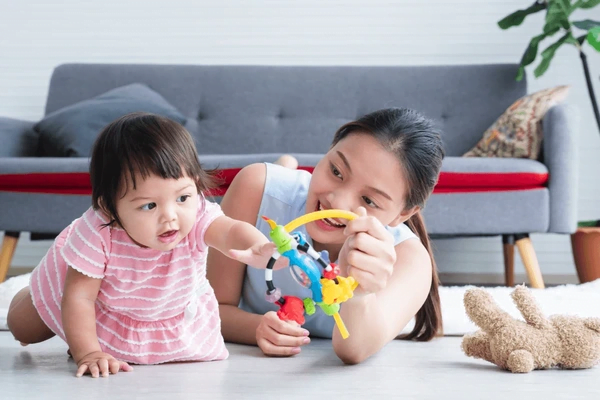The Significance of Play in Children’s Development
July 15, 2024

As caregivers and parents, our primary concerns often revolve around keeping our children safe, healthy, and well-educated. However, play is a crucial aspect of their development that is underestimated. Play is not merely a pastime for children; it plays a pivotal role in their overall growth. This blog post’ll explore why play is essential for children and how it contributes to their holistic development..
1. Physical Development
Play is integral to a child’s physical development. Activities such as running, jumping, climbing, and participating in sports help build muscle strength, improve coordination, and enhance motor skills. These physical activities also contribute to maintaining a healthy weight and preventing childhood obesity.
2. Cognitive Development
Play significantly boosts cognitive growth. Children learn to solve problems, make decisions, and unleash their creativity through play. Whether constructing a block tower, pretending to be a superhero, or engaging in a game of tag, they continuously learn and adapt. These activities sharpen their critical thinking abilities and instill a lifelong love for learning.
3. Social Skills
Play is a natural environment for children to develop social skills. Interacting with peers during play teaches them to share, take turns, and work collaboratively. They learn to communicate effectively, recognize social cues, and develop empathy. These experiences are essential for building relationships and handling social situations as they mature.
4. Emotional Development
Play also plays a crucial role in emotional development. It allows children to express their feelings and learn to manage emotions such as happiness, frustration, and anger. Imaginative play, in particular, enables children to explore various scenarios and roles, helping them understand and process their emotions more effectively.
5. Language Development
Language skills flourish during play. The conversations during playtime, whether with adults or other children, enrich vocabulary and improve language comprehension. Storytelling and pretend play are especially beneficial for language development as they encourage children to use words to convey ideas and narratives.
6. Encouraging Play
Here are some ways parents and caregivers can promote play:
Create a Safe and Stimulating Environment: Provide children with access to various toys and materials that encourage different types of play, from physical activities to imaginative play.
Participate in Play: Engage in play with your children. Joining their games strengthens your bond and demonstrates that play is valuable.
Allow Unstructured Time: Ensure children have free time for unstructured play. Unstructure play allows them to use their creativity and imagination without the constraints of organized activities.
Limit Screen Time: Encourage more active and imaginative play by limiting screen time.
7. Conclusion
Play is far more than just fun and games. It is vital to a child’s development, supporting physical, cognitive, social, and emotional growth. By recognizing the importance of play and providing opportunities for children to engage in playful activities, we help them build a strong foundation for a healthy and well-rounded future.
Dealing with a gassy baby can be challenging, but there are ways you can help alleviate your baby’s discomfort and provide relief. Remember to consult with your pediatrician if you have any concerns or if your baby’s gas symptoms persist. Holly Springs Pediatrics is committed to providing quality care to your kids at all times on a wide array of subjects. For more information or to get in contact with our office, call (919) 249-4700 to schedule an appointment.
